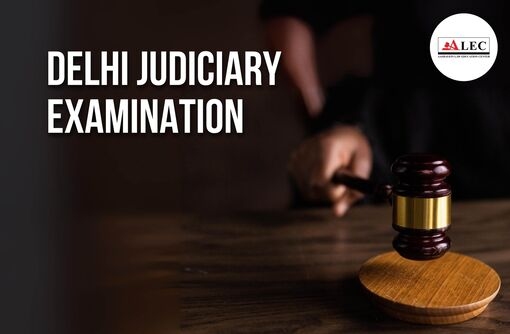Introduction
The Delhi Judicial Service Exam 2024 is conducted annually by the Delhi High Court for the recruitment of Civil Judges in Delhi.
Highlights of the Delhi Judicial Services Examination
- Exam Name: Delhi Judicial Services
- Conducting Body: Delhi High Court
- Stages: Preliminary, Mains, and Interview
Basic Eligibility Criteria
To be eligible for the Delhi Judicial Service Exam, candidates must fulfill the following conditions:
- Citizenship: Must be a citizen of India.
- Professional Qualification: Must be practicing as an Advocate in India or qualified to be admitted as an Advocate under the Advocates Act, 1961.
- Age Limit: Should not be more than 32 years of age as of the specific date mentioned in the official exam notification.
For more information, visit [ALEC Enquiry].
Age Relaxation is applicable for certain categories:
- Scheduled Castes/Tribes: Upper age limit is relaxable by 5 years.
- Ex-Servicemen: Upper age limit relaxable by up to 5 years, provided they have rendered at least 5 years of military service.
Preliminary Exam Details
- Mode of Exam: Objective type
- Subjects: General Knowledge and Law
- Number of Questions: 200
- Negative Marking: 0.25 marks will be deducted for each wrong answer
The Preliminary Examination is a qualifying screening test consisting of multiple-choice questions worth a total of 200 marks. Candidates must score a minimum of 60% to be shortlisted for the Mains examination.
Preliminary Exam Syllabus:
- Aptitude
- General Knowledge
- English
- The Constitution of India
- The Code of Civil Procedure, 1908
- The Code of Criminal Procedure, 1973
- The Indian Penal Code
- The Indian Contract Act, 1872
- The Limited Liability Partnership Act, 2008
- The Arbitration and Conciliation Act, 1996
- The Indian Evidence Act, 1872
- The Specific Relief Act, 1963
- The Limitation Act, 1963
- The Protection of Children from Sexual Offences Act, 2012
- The Commercial Courts Act, 2015
For a deeper dive into the law, don't miss our must-visit pages: Latest Judgments and Blogs!
Mains Examination Details
The Mains examination consists of four papers, as outlined below:
Paper I: General Knowledge and Language (250 Marks)
- Topics: Current Affairs, General Knowledge, Essay Writing, Translation, and Precise Writing
- Translation: Candidates will translate passages from English to Hindi and from Hindi to English.
Paper II: Civil Law I (200 Marks)
- Topics:
- The Indian Contract Act, 1872
- The Sale of Goods Act, 1930
- The Transfer of Property Act, 1882
- The Specific Relief Act, 1963
- Hindu Law, Mohammad Law
- The Delhi Rent Control Act, 1958
- Law of Torts
- The New Delhi Municipal Council Act, 1994
- The Delhi Municipal Corporation Act, 1957
- The Commercial Courts Act, 2015
Paper III: Civil Law II (200 Marks)
- Topics:
- The Code of Civil Procedure, 1908
- The Indian Evidence Act, 1872
- The Limitation Act, 1963
- The Registration Act, 1908
- The Arbitration and Conciliation Act, 1996
- The Trade Marks Act, 1999
- The Copyright Act, 1957
Paper IV: Criminal Law (200 Marks)
- Topics:
- The Code of Criminal Procedure, 1973
- The Indian Penal Code
- The Indian Evidence Act, 1872
- The Protection of Women from Domestic Violence Act, 2005
- The Negotiable Instruments Act, 1881
- The Sexual Harassment of Women at Workplace (Prevention, Prohibition and Redressal) Act, 2013
- The Juvenile Justice (Care and Protection of Children) Act, 2015
Interview Process
Candidates who successfully qualify in the Mains Examination will be called for the Interview (Viva-Voce), which is worth 150 marks.
- Minimum Qualifying Marks:
- General Category: Minimum of 40% marks in each written paper and 50% marks in the aggregate.
- SC/ST/PwD Category: Minimum of 35% marks in each paper and 45% marks in the aggregate.
The final merit list will be prepared by combining the marks obtained in the Mains Examination and the Viva-Voce.
For more information, visit [ALEC Enquiry].
You can also download it using the link below for free
Delhi Syllabus

